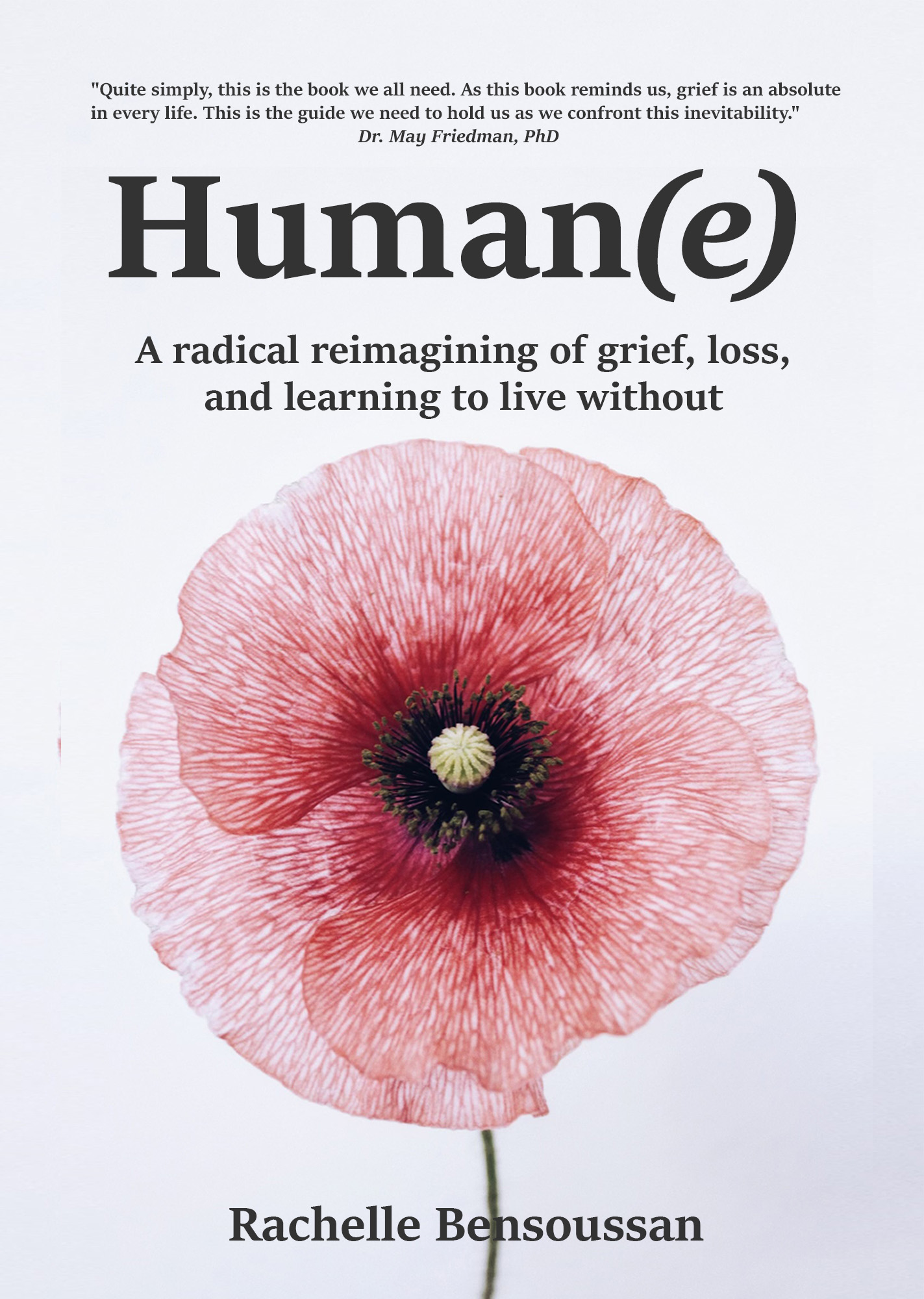
Price: $39.95
Page Count: 159
Publication Date: August 2024
ISBN: 978-1-77258-504-9
“Quite simply, this is the book we all need. Harnessing the power of story, Bensoussan simultaneously naturalizes grief as a necessary part of the work of living and also provides real solace and guidance for those navigating this terrain. As this book reminds us, grief is an absolute in every life. This is the guide we need to hold us as we confront this inevitability.”
– Dr. May Friedman, PhD, Toronto Metropolitan University, *Co-Editor, Body Stories: In and Out and With and Through Fat
"Rachelle Bensoussan’s Human(e) begins and finishes strong. Bensoussan gifts each of us with a profoundly decolonized approach to living without. By debunking myths and traditionally held beliefs about grief, loss, and the grieving process, Bensoussan advocates for a radical move away from the harm of pathologizing grief towards a grief literacy that creates safer language, and time and space for our different experiences of mourning to exist. Human(e) uncovers how institutions, curriculum, systemic discrimination, practices and policies, and access inequities impact our lived experience with grief. I am grateful for this book. It has already helped me unpack some of my deepest fears around loss."
– Dr. Jill Andrew, PhD, *Co-Editor, Body Stories: In and Out and With and Through Fat and Ontario Member of Provincial Parliament
Prologue
Grief Literacy: A Brief History
Before We Begin: A disclaimer on the use of the words We and Culture.
Introduction
Chapter 1: How did we get here? An investigation into the current landscape of grief and loss.
This chapter includes the following:
1. The ways in which grief and loss are pathologized including who this harms and who this benefits
2. The ways in which larger systems (i.e. capitalism) our influencing our experiences of grief and loss
3. Why the stories we are told matter, and how they influence and create our responses to grief and loss.
4. The myth of Elizabeth Kubler Ross and the 5-stage model of grief.
5. The Involuntary Nature of Grief
Chapter 2: Grief is NOT a feeling.
This chapter includes the following:
1. Why grief is not a feeling and how this ever-pervasive myth continues to harm the bereaved
2. An overview of the ways grief can impact us:
a. physically
b. cognitively
c. emotionally
d. spiritually/existentially
e. socially
f. sexually
Chapter 3: When did being human become so wrong?
This chapter includes the following:
1. Grief as a biological requirement for human survival.
2. A look into what supports, and what impedes, the metabolization of grief?
3. The wisdom of community, storytelling, movement and sound.
Chapter 4: Learning to live without. Is it possible that humans are able to metabolize grief without the interference or intervention of paid professionals?
This chapter includes the following:
1. The diverse ways humans metabolize grief:
a. emotionally
b. physically
c. cognitively
2. Instrumental vs. Intuitive Grief Styles
3. What modern grief theory actually reveals including the myth of closure
4. The Western-Colonial bias towards the emotional expression of grief
Chapter 5: Grief as a chronological age. An inquiry of what childhood models of development can teach us about living with loss and supporting those who are grieving.
This chapter includes the following:
1. A theory of how we might use the developmental tasks of childhood as a roadmap into the wilderness of grief and loss
2. What we know about, and what is reasonable to expect from:
a. infants
b. toddlers
c. preschoolers
3. A suggestion of how this model can support us in better understanding the needs and experiences of the bereaved
Chapter 6: Why self-care won't save us. A critique of the self-care movement and how it further impedes our metabolization of grief.
This chapter includes the following:
1. How the term self-care has been coopted and weaponized against the bereaved and those who support them
2. If grief and loss are not optional, how do we stay afloat?
Chapter 7: Silenced: An exploration of mourning and disenfranchised grief.
This chapter includes the following:
1. The four key elements of mourning:
a. Time
b. Space
c. Capacity
d. Resources
2. Disenfranchised grief: when grief is not openly acknowledged, publicly mourned or socially supported
3. The cultural appropriation of grief rites and rituals
4. Human stories of disenfranchised grief: essays from the margins
Epilogue
Rachelle Bensoussan holds a master’s degree in Thanatology and has spent the last fifteen years advancing grief literacy across Canada and the United States. She is a former faculty member at both McMaster University’s Michael G. DeGroote School of Medicine and King’s University College. Rachelle is a two-time nominee for the Association of Death Education and Counselling’s Academic Educator Award and Community Educator Award. Rachelle is a Queer woman of North-African & Middle Eastern descent. She currently lives in Toronto with her brilliant wife, her magical daughter, and her highly dysregulated Yorkshire Terrier. You can learn more about Rachelle and her work at: www.griefliteracy.ca


